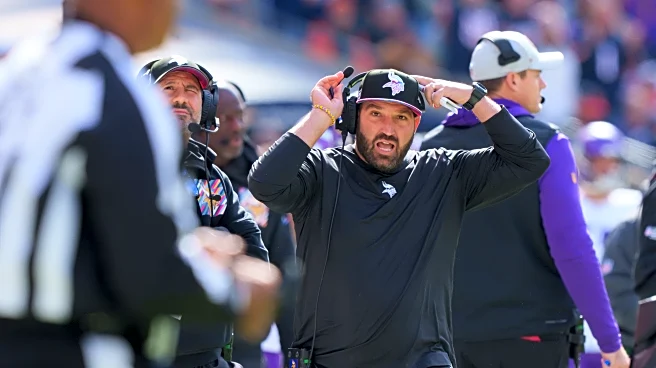What's Happening?
The Las Vegas Aces secured a victory in Game 1 of the 2025 WNBA Finals against the Phoenix Mercury, setting the stage for Game 2. The Aces' bench played a crucial role, outscoring the Mercury's bench significantly. Head coach Becky Hammon had predicted the bench's impact prior to the game, and her prediction proved accurate. After the win, Hammon humorously claimed to have a 'crystal ball' and predicted that the Aces' defense would be better in the upcoming game. The Aces' performance was bolstered by strong contributions from players like Dana Evans and Jewell Loyd, alongside MVP A'ja Wilson.
Why It's Important?
The Aces' victory and Hammon's predictions highlight the strategic depth and confidence within the team. The bench's performance underscores the importance of having a strong supporting cast in high-stakes games, which can be a decisive factor in championship series. Hammon's ability to foresee and articulate her team's strengths reflects her leadership and tactical acumen, which could influence the team's morale and performance. The Aces' success in Game 1 sets a positive tone for the series, potentially boosting their chances of securing the championship.
What's Next?
As the series progresses, the Aces will focus on enhancing their defensive strategies, as predicted by Hammon. The team will aim to capitalize on their bench strength and maintain momentum in Game 2. The Mercury, on the other hand, will likely adjust their tactics to counter the Aces' strengths and improve their own bench contributions. The outcome of Game 2 will be pivotal in shaping the dynamics of the series, with both teams striving to gain an advantage. Fans and analysts will closely watch how Hammon's predictions play out and whether the Aces can sustain their winning form.
Beyond the Headlines
Hammon's predictions and the Aces' performance reflect broader themes of leadership and team dynamics in sports. Her ability to accurately assess and communicate her team's potential highlights the role of strategic foresight in coaching. The emphasis on bench strength also points to the importance of depth and versatility in team composition, which can be crucial in competitive settings. This development may inspire other teams to focus on building robust support systems and leveraging strategic insights to enhance performance.











